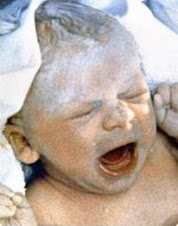·
A recent
study found that children conceived with frozen embryos may be nearly
two-and-a-half times more likely to develop cancer than other children.
·
The use of
frozen embryos to conceive children has increased in the last few decades
because more people are opting to use Invitrofertilization and other fertility preservation methods.
·
The
long-term effects of treatments like IVF have largely remained unstudied.
·
It's been 40 years since the
first baby conceived using in vitro fertilization (IVF) was born. Since then,
the landscape of fertility preservation options has transformed.
These kinds of treatments, including IVF
and IUI, have become more accessible over the years,
making it easier for people to have children later in life. But the long term effects of
treatments that include egg freezing remain largely unstudied, leaving
questions as to what their use means for childhood development.
A group of Danish researchers found that
children conceived using frozen embryos are nearly two-and-a-half times more
likely to develop childhood cancer than other children.
The study, published in the Journal of the American Medical Association,
looked at 1,085,172 children born in Denmark between 1996 and 2012. For
every 100,000 children conceived using frozen embryos, 44.4 developed childhood
cancer. But for every 100,000 children born through embryos that weren't frozen
— whether through IVF or typical conception — only 17.5 developed childhood
cancer.
Those born using fertility methods that did
not involve frozen embryos, like IVF (using fresh embryos) or hormonal
treatments, were not at an increased risk.
*Childhood cancer is so rare that the risk is
still low
While the increase in the likelihood of
developing childhood cancer is statistically significant, it is still a small
increase in risk overall because childhood cancer is so rare.
The study authors noted that one of the
greatest limitations of the study was that childhood cancer cases are rare, so
it's difficult to draw concrete conclusions about all children born using
frozen embryos from the findings.
Previous research on the long-term effects of
fertility treatments on children has linked it to cancer before
The new study isn't the first time
researchers have made the connection between cancer and fertility treatments. A smaller Danish study of 690 people drew a similar connection between
cancer and fertility treatments.
The study found that children conceived
using certain types of fertility treatment — namely those involving embryo
freezing — were at a slightly higher risk of developing children cancer than
those birthed without those treatments.
However, like the most recent study, the likelihood of developing childhood cancer was still extremely low, regardless of how a child was conceived.
However, like the most recent study, the likelihood of developing childhood cancer was still extremely low, regardless of how a child was conceived.







